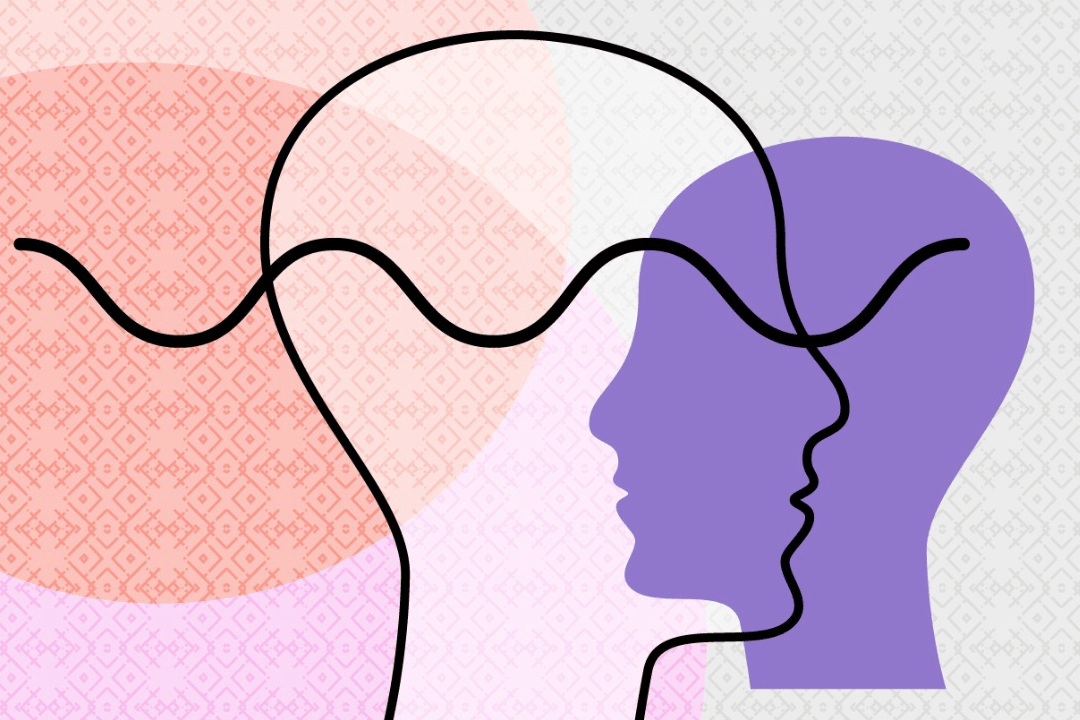We all want to be there for our loved ones – hold space, be empathetic, listen to them. Sometimes we find ourselves at a loss of words or wondering how we’re supposed to react. We might become really conscious of how we’re sitting and how we’re behaving, constantly questioning what we should say next. But while we’re busy focusing on how we’re responding, we often forget to focus on the other person.
If you’re trying to hold space for somebody, which is a large part of a psychotherapist’s job, you can make use of the skills that they use. This is not to say that you fill the role of a therapist in someone’s life (that’s not going to be of much help to either you or them) but apply the same kind of knowledge in situations where you can help someone just by lending them a listening ear.
Holding space vs Making conversation
A conversation includes a whole lot of things – exchanging experiences, ideas, opinions, stories, advice, and even solutions. Both the listener and the speaker are constantly switching roles between listening and speaking. But when we’re holding space for someone, we remain in the role of the speaker. The focus remains on the speaker, their emotions and their experiences. We (the listener) can contribute by encouraging them to share, asking questions, understanding what the listener is saying and communicating this ‘understanding’ to them.
Your conversation can often be a mix of the two, depending on the situation. Holding space for someone will give them the focus and attention that they might need and will allow you the space and time to respond appropriately.
Tune in:
Want to have a conversation, understand someone, resolve conflict, or talk about something that’s bothering you? Listen! This means addressing your concerns or thoughts, and then don’t just wait for the other person to respond, but listen to what they really have to say. Actively listening means taking their tone, their actions, and other non-verbal cues into account.
Try keeping all distractions at bay (yes, that means even your phone) the next time you discuss something important with someone or are resolving conflict. Try responding to them in small ways: a nod, a “hmm”, a “yes”, to let them know you are actively listening to what they have to say. If you feel like that is not enough, try summarising what they have just said before you make your own point of view. This makes people feel heard!
A No Judgement Zone:
You know when the neighbouring aunties tell us that we can confess anything to them because it will be safe, but when we do, we instantly feel judged? Yeah, same. Holding a no judgement space is hard because it involves lots of non-verbal cues.
The next time you tell your friend that they can tell you anything, and when they say they went back to their ex-partner… be aware of your non-verbal communication. If your eyes go wide, you gasp or furrow your eyebrows – it’s an instant sign that this isn’t a safe space. Instead of focusing on the situation (which could be bad, sure), focus on what they are feeling about it, and tune right in.
Focusing on the feeling:
Feelings are very important because they tell you a lot more than just what has happened! Feelings can help you figure out motivation, decisions and maybe even the thoughts that go with it. Ask open ended questions to understand how a person is really feeling:
“How did that make you feel?”
“What was going on in your mind when…?”
“What made you feel that way?”
Dig deeper into those feelings.
Advice v/s Guidance:
If a friend comes to you saying they are overwhelmed because of a certain problem, start by asking them what they’d like to do about it? Do they just want to be heard or would they like some help?
When someone asks “What should I do?”, you might go two ways: give advice or guide them. Here, the difference lies in the person deciding the solution. Advice would mean you decide the solution for them, (“You should….”) while guidance would mean you understand their problem completely and then help them come up with options to choose from and allow them to make a decision (It seems like… you could possibly…. or…)
Be Genuine:
If you feel a certain way, bring it to the table. Genuineness and congruence with our own self is one of the simplest and most important tools in the therapy room. To know oneself also means to be mindful of yourself and others. It brings about the communication, listening, empathy, and care in a true form. This doesn’t have to be so that we speak whatever comes to our mind, but more of an ability to understand our own feelings, wants and needs before responding or reacting. Ask yourself how you feel about a situation or a conflict before going ahead to resolve, help, or talk. Keep a check on yourself too.
All this being said, acknowledge that psychologists train themselves for years to gain and hone these skills. It’s okay to not always have these skills at your disposal. We don’t either! We are as human as you are outside the therapy room. We react, get angry, have fights and advise people as well. Just that these skills help us recognise when we are doing this.
Holding space for someone else, especially a loved one, can be rewarding but it can also be tiring and draining because unlike therapists who have a work boundary of 10 to 7, you might not. All of the above are things you can use if you’re in a good headspace, if you aren’t, that’s okay too. Make boundaries for how ready you are to use these skills. You can always let the other person know this and reschedule for another time.
If you do have a conversation and feel like they might need more support, encourage them to get professional help, because there’s only so much you can do as a non-professional.
If you’ve had a held space for someone and have been feeling triggered or drained, talk to someone else. Let them hold space for you, actively listen, guide and be genuine with you too. Seriously, therapists talk to others for reassurance and to vent too!


 Sarika believes she has learnt the most about life from talking to people around her - having meaningful conversations, understanding different experiences & perspectives. She also loves sunsets, coffee and cats as much as she loves great conversation. Her research interests are ever-changing and ever-growing: she’s curious about a lot of things but mental health awareness always remains priority. Apart from talking and making an extensive list of things to research, Sarika loves spending her day reading books, baking, learning new skills, and making videos.
Sarika believes she has learnt the most about life from talking to people around her - having meaningful conversations, understanding different experiences & perspectives. She also loves sunsets, coffee and cats as much as she loves great conversation. Her research interests are ever-changing and ever-growing: she’s curious about a lot of things but mental health awareness always remains priority. Apart from talking and making an extensive list of things to research, Sarika loves spending her day reading books, baking, learning new skills, and making videos.




